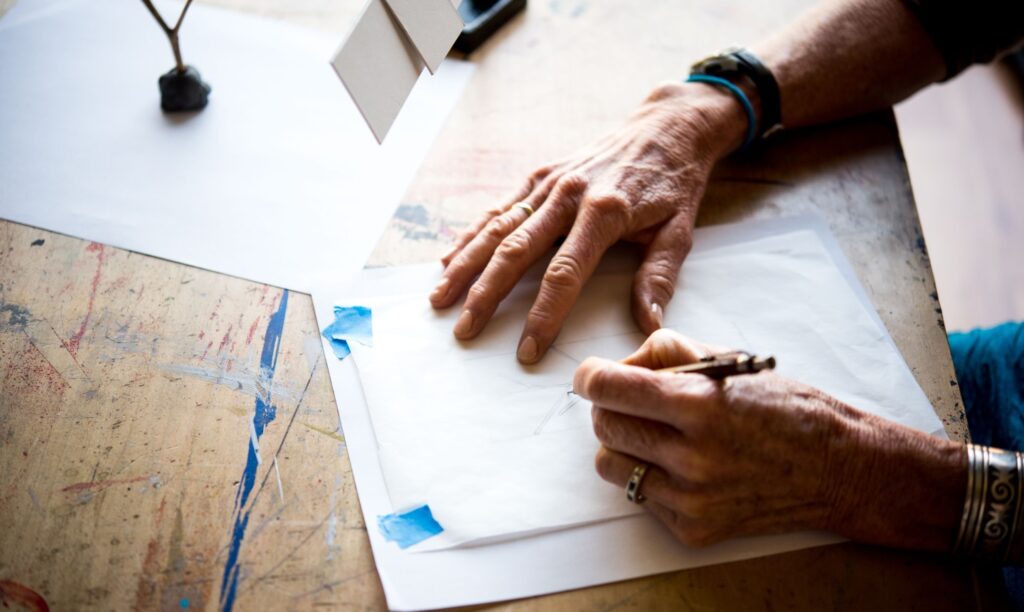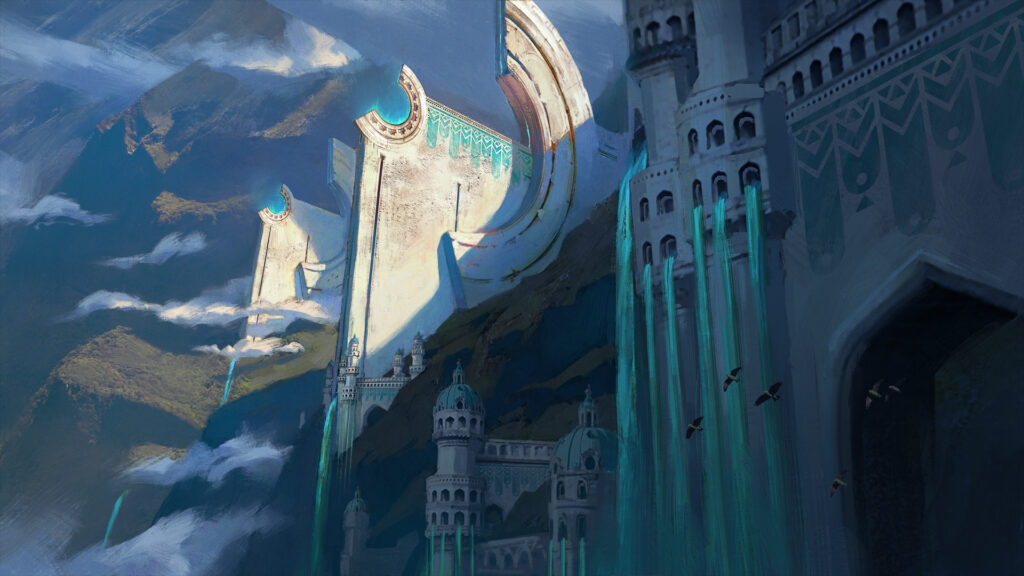Concept art serves as the cornerstone of any visual project, whether it’s for video games, movies, animations, or even architectural designs. It lays the foundation for bringing ideas to life – guiding the creative process from inception to realization. But exactly how much does concept art cost?
Unraveling this question requires understanding the activity as a whole and grasping the various factors that influence pricing in the realm of concept art. So let’s get right to it in this guide and answer the question: How much does concept art cost, after all?
Read as well: Advertising in video games – types and benefits

How much does concept art cost?
No precise or generic answer can embrace such a complex matter. You see, when delving into the question of “How much does concept art cost?”, it’s essential to recognize the diverse array of factors that can influence pricing – and we will discuss these factors in detail ahead.
While pinpointing an exact figure for concept art costs can be challenging, offering a rough estimate can shed light on this intricate landscape. At the lower end of the spectrum, basic sketches or rough drafts often serve as the foundation for more refined artwork.
These initial concepts typically fall within the range of $50 to $100. Although these sketches may lack the intricate details of finished pieces, they are crucial in the brainstorming and early ideation stages.
As the artwork progresses towards more polished illustrations or modeled character designs, the pricing naturally escalates. A more elaborate and refined piece may range anywhere from $200 to $1000 per piece. In cases where the artwork demands an exceptionally high level of detail or complexity, the price can surpass the $1000 mark.
These projects often involve intricate designs that require meticulous attention to detail, extensive research, and advanced artistic skills.
How much does concept art cost? Understanding the scope
First and foremost, it’s essential to grasp the scope of concept art. Concept artists are tasked with visualizing abstract ideas, characters, environments, and objects based on a client’s vision or a creative team’s requirements.
Their work encompasses sketches, illustrations, digital paintings, and sometimes 3D models, all aimed at communicating the essence of a concept. This is a crucial component in various creative industries, including film, video games, animation, and advertising.
Concept artists play a pivotal role in the early stages of production, where ideas are conceptualized and visualized before they are realized in their final form.
One of the primary responsibilities of concept artists is to translate abstract ideas into tangible visuals. They work closely with clients, directors, producers, or creative teams to understand their vision and requirements.
This collaboration involves gathering information about the project’s setting, characters, mood, and themes. Using their artistic skills and imagination, concept artists then create sketches, illustrations, or digital paintings that capture the essence of these ideas – these visuals serve as a blueprint for the rest of the creative process, providing a visual reference for designers, animators, and other team members.
Concept art is not just about creating visually appealing images; it’s also about storytelling and problem-solving. Concept artists need to consider factors such as composition, lighting, color theory, and visual narrative to effectively communicate the intended message or mood.
Furthermore, concept art is an iterative process, with artists often refining their work based on feedback from clients or colleagues. This iterative approach allows for experimentation and exploration, ensuring that the final concept meets the project’s requirements and objectives.
Overall, concept art is a dynamic and essential aspect of the creative process, bridging the gap between imagination and reality and laying the foundation for compelling visual experiences.

5 influencing factors in the concept art cost
So, as you can see, things are much more complex than simply “making a drawing”. Good concept artists need to be integrated into the entire project to understand all the aspects that can help create a cohesive and precise visual guide for the team.
So let’s discuss 5 specific factors that can influence the cost of concept art.
1 – Complexity
The complexity of the concept greatly impacts the cost. Simple character sketches may be less expensive compared to intricate, detailed environments or highly realistic character designs requiring extensive rendering.
For instance, a basic black-and-white character sketch might cost significantly less than a full-color, fully rendered scene with intricate details and backgrounds. Complex designs often require more time and effort from the artist, thus resulting in higher pricing.
2 – Experience and skill level
Seasoned concept artists with a proven track record may charge higher rates due to their expertise and proficiency. Beginners or artists with less experience might offer more budget-friendly options.
A highly skilled artist may command higher fees because of their ability to deliver quality work efficiently, whereas less experienced artists might be more affordable but may also require more guidance and supervision.
3 – Usage rights
The intended usage of the concept art also affects pricing. Commercial projects often entail higher fees compared to personal or non-profit endeavors.
Additionally, the scope of usage rights, whether it’s for a single project or multiple platforms, influences the overall cost. Exclusive rights, which limit the artist’s ability to use the artwork elsewhere, typically come with higher price tags than non-exclusive licenses.
4 – Revisions and iterations
Concept art is often subject to revisions based on client feedback and project requirements. The number of revisions included in the initial cost and any additional changes beyond that can impact the final price.
Some artists may include a set number of revisions in their base price, while others may charge extra for each revision beyond the agreed-upon limit. Extensive revisions or major changes to the initial concept may incur additional fees.
5 – Deadline and timeline
Tight deadlines or expedited turnaround times may incur rush fees or higher rates to prioritize the project over others in the artist’s schedule.
Artists may charge more for projects that require them to work nights or weekends to meet tight deadlines. Additionally, clients who require priority scheduling to accommodate their timelines may need to pay higher rates to secure the artist’s availability.

In conclusion
Concept art is a vital component of the creative process – bridging the gap between imagination and realization. So answering the question of “How much does concept art cost?” is not simple. Understanding the factors influencing concept art costs empowers both artists and clients to navigate pricing discussions effectively.
While costs may vary based on complexity, experience, and project requirements, transparency, communication, and mutual respect form the bedrock of successful collaborations in the realm of concept art.
We here at Main Leaf have 12 years of experience in the game development industry. We know how important concept art is for the development of our products – and we recommend that everyone gives it the attention and credit it deserves!
If you liked this article, check out our blog for many other ones relating to the video game industry and video game development. And, of course, you can always contact us to learn more about our work and services. We’ll answer you within 24 hours at most!

